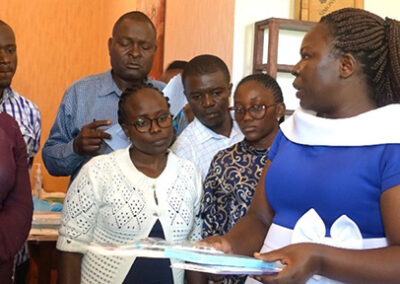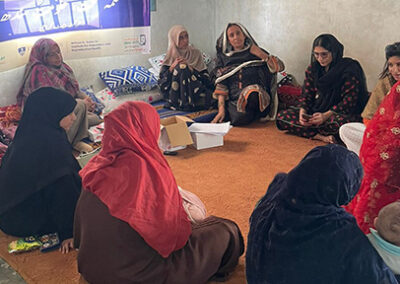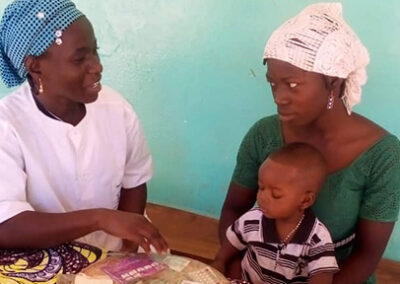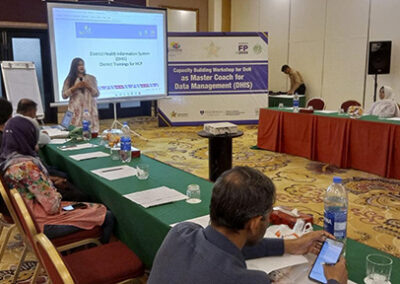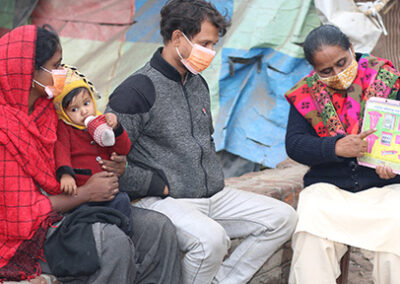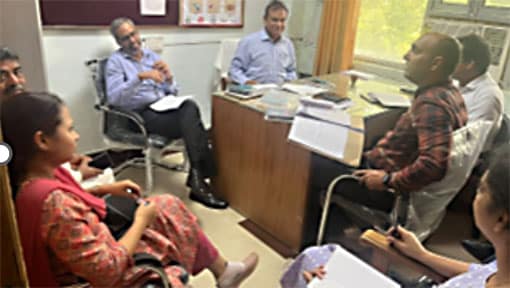
Master coach meeting in Lucknow.
In a groundbreaking partnership that began in 2018, The Challenge Initiative (TCI) joined with the health department in the Indian state of Uttar Pradesh to transform urban family planning in Ayodhya (Faizabad) and Lucknow.
Ayodhya graduated from TCI support in February 2021, followed by Lucknow’s graduation in July 2022. Before TCI’s intervention, family planning services were scarce, particularly for those living in poverty around urban primary health centers (UPHCs). Fixed-day static services (FDS), now a cornerstone of the program, were a novel concept, and data validation committee meetings were nonexistent, leaving room for improvement in data quality.
To address these challenges and ensure sustainable progress, TCI facilitated the creation of a cadre of “master coaches” in both cities. These coaches, including key figures like Dr. Akhand Pratap Singh and Dr. Ved Prakash Tripathi, were instrumental in driving change and amplifying the impact of TCI’s high-impact practices and other interventions (HIPs & HIIs).
In Lucknow, regular meetings among master coaches became the norm, fostering collaboration and enabling the exchange of insights gleaned from field visits and performance tracking. Dr. Singh, an Urban Nodal overseeing the National Urban Health Mission (NUHM) programs in Lucknow who was identified as a master coach to support HIPs & HIIs implementation, reminisced about the journey, emphasizing the enduring impact of TCI’s initiatives.
Our team … was proudly given the responsibility of being the master coaches of the city. We met quarterly to discuss field visit findings, monitor facility performance and commodity availability, address family planning issues, and identify coaching needs.
Initially, TCI India demonstrated interventions and guided us in using platforms like the city health coordination committee, district quality assurance committee, data validation committee, and NUHM review meeting to strengthen the urban health system. This enabled us to learn how to implement HIPs & HIIs and subsequently lead their implementation. Our approach to urban family planning is much broader now and this mindset shift has happened with the support of TCI.
Currently, we are focused on coaching private sector providers to ensure family planning services are offered to eligible clients in private hospitals. We’ve selected potential private facilities, sensitized their service providers on the communities’ need for family planning, and coached private providers on how to upload family planning data to the HMIS portal.
Moreover, we’ve coached the District Hospitals’ Chief Medical Superintendent on how to assure the availability and accessibility of postpartum and post-abortion services at their facilities. Even though the TCI program graduated from the city last year, we continued to provide supportive supervision to facilities, reviewing urban family planning data in NUHM review meetings, ensuring weekly fixed-day static (FDS) services in all facilities, and sharing FDS reports on the NUHM WhatsApp group.”
Dr. Tripathi, the NUHM’s Urban Nodal in Ayodhya, echoed Dr. Singh’s sentiments, particularly highlighting TCI’s unwavering support during the COVID-19 pandemic. Despite the challenges posed by the outbreak, TCI’s advocacy ensured the uninterrupted delivery of family planning commodities to the community by ASHAs, as well as reinstating vital services at UPHCs.
We have learned many effective strategies from TCI India that we are continuing after graduation, such as making sure there is enough funding for urban family planning in the PIP (Program Implementation Plan), regularly reviewing how the budget for urban health is being used, reviewing the urban family planning program in various meeting platforms, expanding the pool of providers by engaging the private sector, periodically building the capacity of service providers, and ensuring convergence of service across departments. The convergence platform has not only aided in improving the quality of family planning services but has helped improve other aspects of health, such as locating spaces for health and wellness centers, executing awareness campaigns of dengue and malaria, and improving other health programs as well.”
The successes seen in Ayodhya and Lucknow are reflected below in both cities’ HMIS data, which shows a continued increase in annual client volume post-graduation.
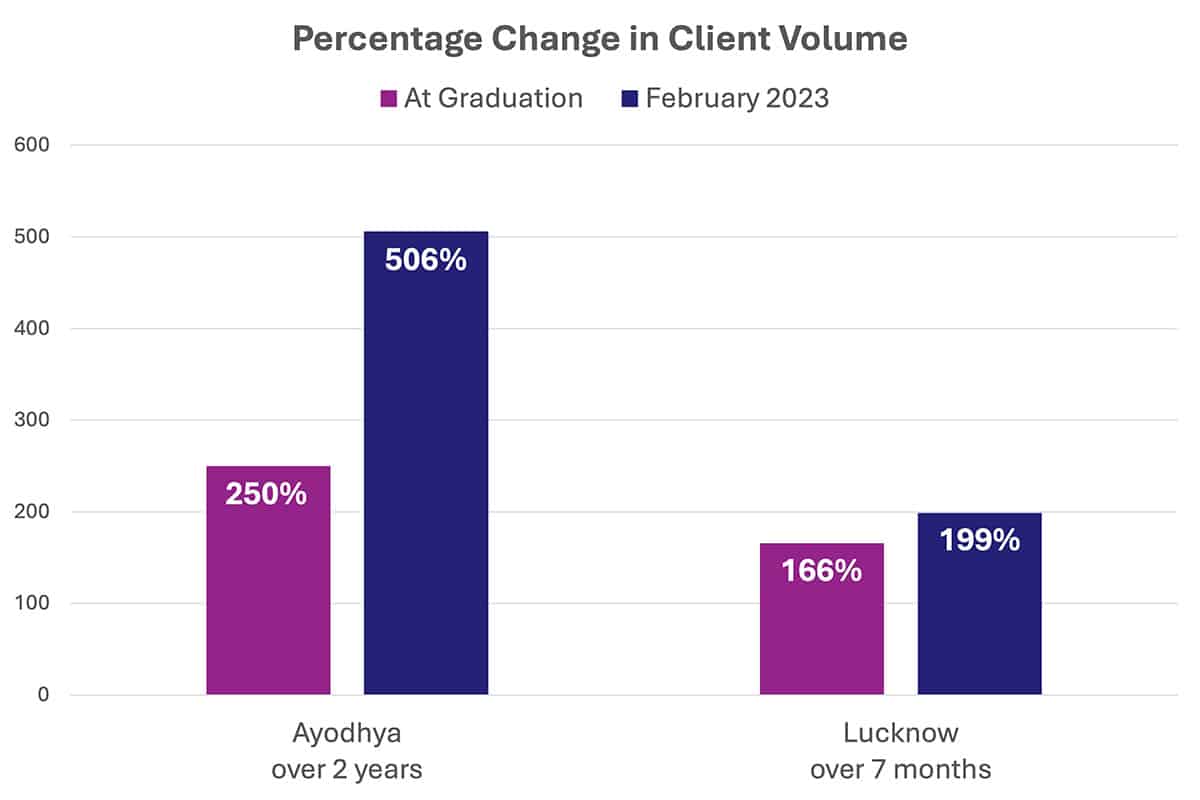
Graph showing the percentage change in client volume after graduating from TCI’s direct support. From 250% to 506% in Ayodhya two years after graduating (Feb. 21) and from 166% to 199% in the seven months since Lucknow graduated (July 2022).

